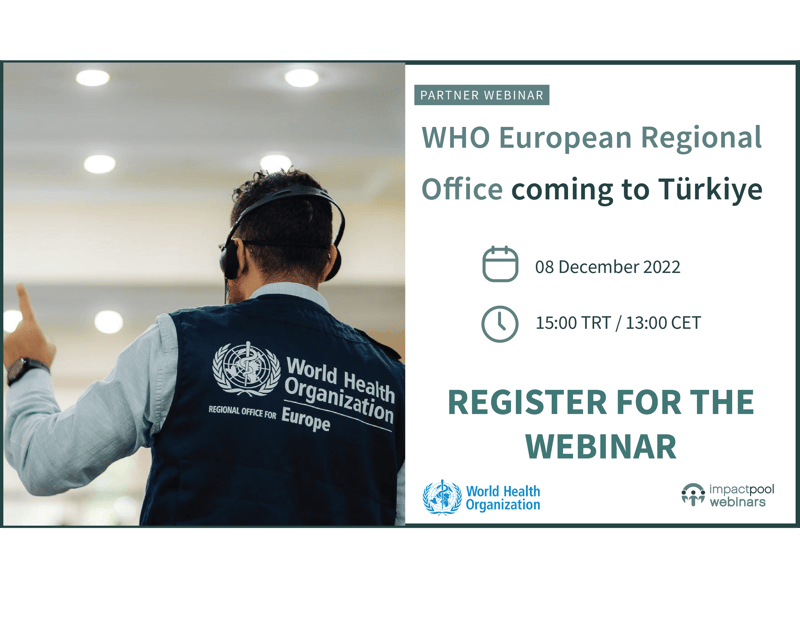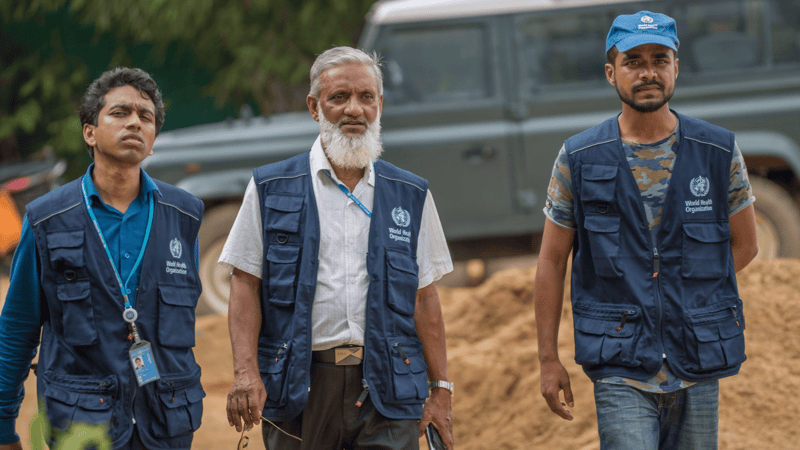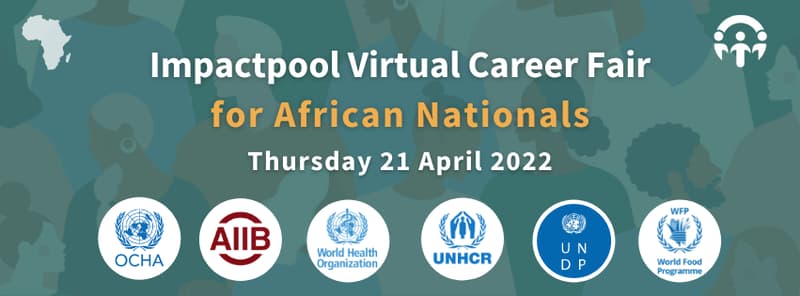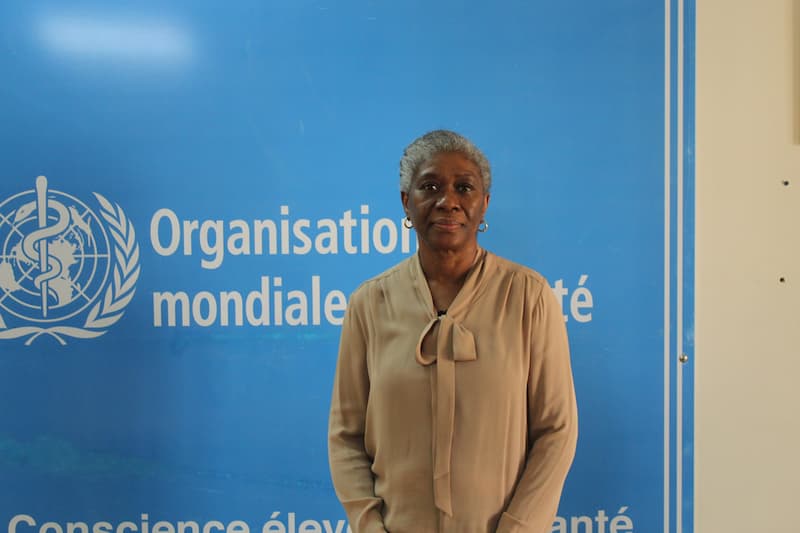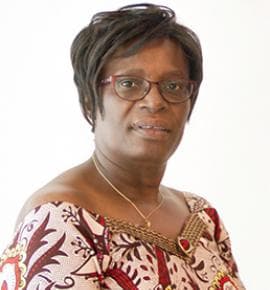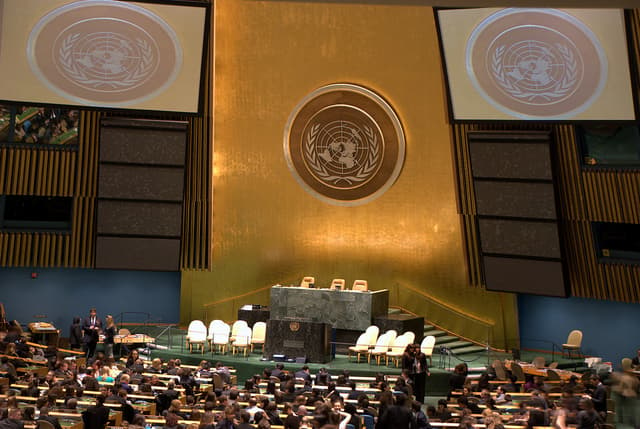Medical Officer, Mental Health
Brazzaville
- Organization: WHO - World Health Organization
- Location: Brazzaville
- Grade: Mid level - P-4, International Professional - Internationally recruited position
-
Occupational Groups:
- Public Health and Health Service
- Medical Practitioners
- Refugee rights and well-being
- Closing Date: 2023-12-10
OBJECTIVES OF THE PROGRAMME
The overall objective of the UHC/Communicable and non-communicable disease Cluster(UHC/CND) is to contribute to universal health coverage (UHC) and the attainment of the health-related SDG targets through integrated disease prevention and control. The aim of the NCD team within the Cluster is to provide leadership and vision in supporting Member States in the WHO African region to reduce morbidity and mortality due to NCDs and mental health and improve the overall health status of the African population. The Cluster focuses on major NCDs, such as, Cardiovascular diseases, Diabetes, Cancer, Sickle Cell Disease, Chronic respiratory diseases, Mental health and substance use disorders, within the context of Primary health care. It also deals with Disabilities such as Eye and Ear Health, and Rehabilitation, and Oral health. It also works with Regional Collaborating Centres, facilitates and undertakes policy development, programme planning, implementation, monitoring and evaluation, surveillance, research activities and implements innovative methods to scale up NCD prevention and disease-management within the context of universal health coverage.DESCRIPTION OF DUTIES
The incumbent will be expected to perform the following duties: ⢠Provide technical support and guidance to countries aimed at expanding access to services for mental health mental health, neurological and substance abuse disorders through public health systems and integration into primary health care; ⢠Provide technical support and guidance to countries in implementing WHO's mental health Gap Action Programme (mhGAP), especially with reference to building capacity in and increasing use of the mhGAP Interventions; ⢠Advocate for and lead for priority mental, neurological and substance use disorders interventions in non-specialized settings.⢠Support the development, promotion and evaluation of national policies, laws, strategies and standards targeting and empowering people with mental disorders, psychosocial disabilities, alcohol and substance abuse to lead dignified life without stigma and prejudice;⢠Provide guidance and evidence for multi-sectoral and holistic care, including community-based care, for people with mental disorders, substance use, including alcohol; ⢠Strengthen information systems and health research to generate data for decision-makers⢠Promote stakeholders' collaboration and partnership development for placing mental health, control of alcohol use and substance abuse in higher national agendas;⢠Guide initiatives to enhance the capacity of public/private health care workers' in providing integrated NCD services within PHC service delivery systems, developing training programmes for all categories of health personnel, including those at district and local levels; ⢠Advocate for and enable the inclusion of related interventions across the life course and continuum of care; the development and promotion of national policies, laws; and the orientation of health systems towards addressing NCDs through inclusion within Universal Health Coverage; ⢠Strengthen regional capacity in the area of reduction of harmful use of alcohol and control of substance abuse; ⢠Contribute to and support development of a regional programme for reducing harmful use of alcohol and other substances and associated public-health consequences;⢠Review studies and support research carried out in the Region in the area of harmful use of alcohol and other Substances and disseminate those that are most useful;⢠Coordinate the collection, review and selection of tools and training materials developed by WHO focusing on data collection, evaluation and treatment of substance-related harm;⢠Provide support and guidance to selected countries in the development of national policy as well as strategic plans and programs related to alcohol and drugs at country level;⢠Collaborate with network of experts and other partners, NGOs, and the UN Office of Drug Control (UNODC) on the harmful use of alcohol and other substance abuse issues.⢠Perform other related responsibilities as assigned, including replacing and backstopping for others as required.REQUIRED QUALIFICATIONS
Education
Essential: Medical degree and a post-graduate degree in public healthDesirable: Advanced university degree (Masters level or above) or specialized training in Psychiatry or social sciences related to alcohol and substance abuse will be an asset.
Experience
Essential: At least 7 years' experience in developing, managing and providing medical advisory services for the control and elimination of NCDs through capacity building in Mental Health and Alcohol/Substance Abuse, within Public Health Programmes, of which at least 3 years should be at the international level.Desirable: Relevant work experience in WHO and/or other UN agencies, non-governmental or humanitarian organizations. Field experience in developing countries.
Skills
Excellent analytical and organizational skills. Ability to advocate, plan and implement projects and activities.WHO Competencies
TeamworkRespecting and promoting individual and cultural differences
Communication
Producing results
Creating an empowering and motivating environment
Use of Language Skills
Essential: Expert knowledge of English. Beginners knowledge of French.Desirable:
REMUNERATION
WHO salaries for staff in the Professional category are calculated in US dollars. The remuneration for the above position comprises an annual base salary starting at USD 77,326 (subject to mandatory deductions for pension contributions and health insurance, as applicable), a variable post adjustment, which reflects the cost of living in a particular duty station, and currently amounts to USD 3396 per month for the duty station indicated above. Other benefits include 30 days of annual leave, allowances for dependent family members, home leave, and an education grant for dependent children.ADDITIONAL INFORMATION
- This vacancy notice may be used to fill other similar positions at the same grade level
- Only candidates under serious consideration will be contacted.
- A written test and/or an asynchronous video assessment may be used as a form of screening.
- In the event that your candidature is retained for an interview, you will be required to provide, in advance, a scanned copy of the degree(s)/diploma(s)/certificate(s) required for this position. WHO only considers higher educational qualifications obtained from an institution accredited/recognized in the World Higher Education Database (WHED), a list updated by the International Association of Universities (IAU)/United Nations Educational, Scientific and Cultural Organization (UNESCO). The list can be accessed through the link: http://www.whed.net/. Some professional certificates may not appear in the WHED and will require individual review.
- According to article 101, paragraph 3, of the Charter of the United Nations, the paramount consideration in the employment of the staff is the necessity of securing the highest standards of efficiency, competence, and integrity. Due regard will be paid to the importance of recruiting the staff on as wide a geographical basis as possible.
- Any appointment/extension of appointment is subject to WHO Staff Regulations, Staff Rules and Manual.
- Staff members in other duty stations are encouraged to apply.
- The WHO is committed to creating a diverse and inclusive environment of mutual respect. The WHO recruits and employs staff regardless of disability status, sex, gender identity, sexual orientation, language, race, marital status, religious, cultural, ethnic and socio-economic backgrounds, or any other personal characteristics.
- The WHO is committed to achieving gender parity and geographical diversity in its staff. Women, persons with disabilities, and nationals of unrepresented and underrepresented Member States (https://www.who.int/careers/diversity-equity-and-inclusion) are strongly encouraged to apply.
- Persons with disabilities can request reasonable accommodations to enable participation in the recruitment process. Requests for reasonable accommodation should be sent through an email to reasonableaccommodation@who.int
- An impeccable record for integrity and professional ethical standards is essential. WHO prides itself on a workforce that adheres to the highest ethical and professional standards and that is committed to put the WHO Values Charter into practice.
- WHO has zero tolerance towards sexual exploitation and abuse (SEA), sexual harassment and other types of abusive conduct (i.e., discrimination, abuse of authority and harassment). All members of the WHO workforce have a role to play in promoting a safe and respectful workplace and should report to WHO any actual or suspected cases of SEA, sexual harassment and other types of abusive conduct. To ensure that individuals with a substantiated history of SEA, sexual harassment or other types of abusive conduct are not hired by the Organization, WHO will conduct a background verification of final candidates.
- Mobility is a condition of international professional employment with WHO and an underlying premise of the international civil service. Candidates appointed to an international post with WHO are subject to mobility and may be assigned to any activity or duty station of the Organization throughout the world.
- WHO also offers wide range of benefits to staff, including parental leave and attractive flexible work arrangements to help promote a healthy work-life balance and to allow all staff members to express and develop their talents fully.
- The statutory retirement age for staff appointments is 65 years. For external applicants, only those who are expected to complete the term of appointment will normally be considered.
- Please note that WHO's contracts are conditional on members of the workforce confirming that they are vaccinated as required by WHO before undertaking a WHO assignment, except where a medical condition does not allow such vaccination, as certified by the WHO Staff Health and Wellbeing Services (SHW). The successful candidate will be asked to provide relevant evidence related to this condition. A copy of the updated vaccination card must be shared with WHO medical service in the medical clearance process. Please note that certain countries require proof of specific vaccinations for entry or exit. For example, official proof /certification of yellow fever vaccination is required to enter many countries. Country-specific vaccine recommendations can be found on the WHO international travel and Staff Health and Wellbeing website. For vaccination-related queries please directly contact SHW directly at shws@who.int.
- WHO has a smoke-free environment and does not recruit smokers or users of any form of tobacco.
- For information on WHO's operations please visit: http://www.who.int.
- In case the website does not display properly, please retry by: (i) checking that you have the latest version of the browser installed (Chrome, Edge or Firefox); (ii) clearing your browser history and opening the site in a new browser (not a new tab within the same browser); or (iii) retry accessing the website using Mozilla Firefox browser or using another device. Click this link for detailed guidance on completing job applications: Instructions for candidates

